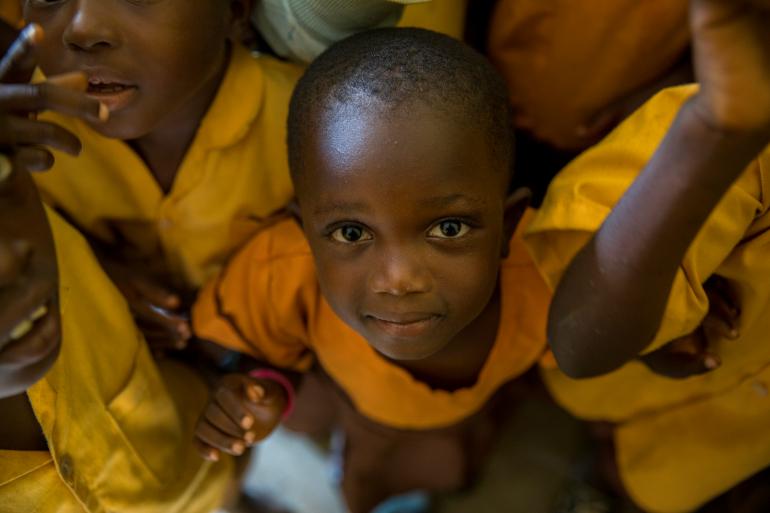Quality management to transform educational practices
The global learning crisis is having a disproportionate impact in Africa. Despite major progress in access, nearly 60% of students still struggle to attain literacy and numeracy after six years of primary schooling. In response, IIEP leads an innovative programme to support the management of quality in basic education in eight African countries–Burkina Faso, Burundi, Cameroon, Côte d'Ivoire, Madagascar, Niger, Senegal and Togo. Targeting all levels of the education system, the programme views quality management as a process of continuous improvement and strives to support education actors in the sustainable transformation of their professional practices. Education actors are then able to understand obstacles to quality education and propose concrete solutions.
To carry out the diagnosis, the inspectors and teachers in the teacher training colleges learned to detach themselves from their habits as supervisors and take on the mantle of researchers. Rather than blaming certain practices, they tried to understand them.”
Making use of learning assessment data

Learning assessments have become an important fixture of 21st century education systems. From international large-scale assessments to citizen-led tests, many testing instruments strive to show how well students learn. But what are the risks, and to what extent does the data influence educational policy-making and planning? To answer these questions, IIEP researched the use of learning assessment data in planning in six sub-Saharan countries (the Gambia, Ghana, Guinea, Namibia, Senegal, and Zambia) and six Latin American states (Argentina, Brazil, Chile, Ecuador, Mexico, and Uruguay), and produced specific recommendations for the participating countries on how to improve the application of the data throughout the planning cycle. The research has also informed IIEP’s technical support to countries and training programmes.
12 policy briefs and information sheets published in 2021
Three webinars with the IIEP Learning Portal
Training to analyse the quality of education
In 2021, one of several courses of the Specialized Courses Programme –IIEP’s short online training offer– showed 94 participants from 26 countries how to use learning assessment data to monitor the progress of Sustainable Development Goal 4. During two months, participants reviewed international debates and indicators associated with monitoring and evaluating the quality of education, evaluated the feasibility of carrying out different learning assessments in their own country, and developed the analytical skills to process and interpret relevant data in ways that can be translated into policy and planning.
We have designed this interactive and collaborative course in a way that will give education professionals the skills required to advise senior decision-makers confidently about using learning assessments to build evidence-based policies on the quality of education.”
In Latin America, two tailored courses were offered in 2020 on educational policy planning and management for the Ministry of Education in Panamá, as well as two specialized courses on the use and interpretation of educational statistics for planning for both Guatemala and Panamá.
